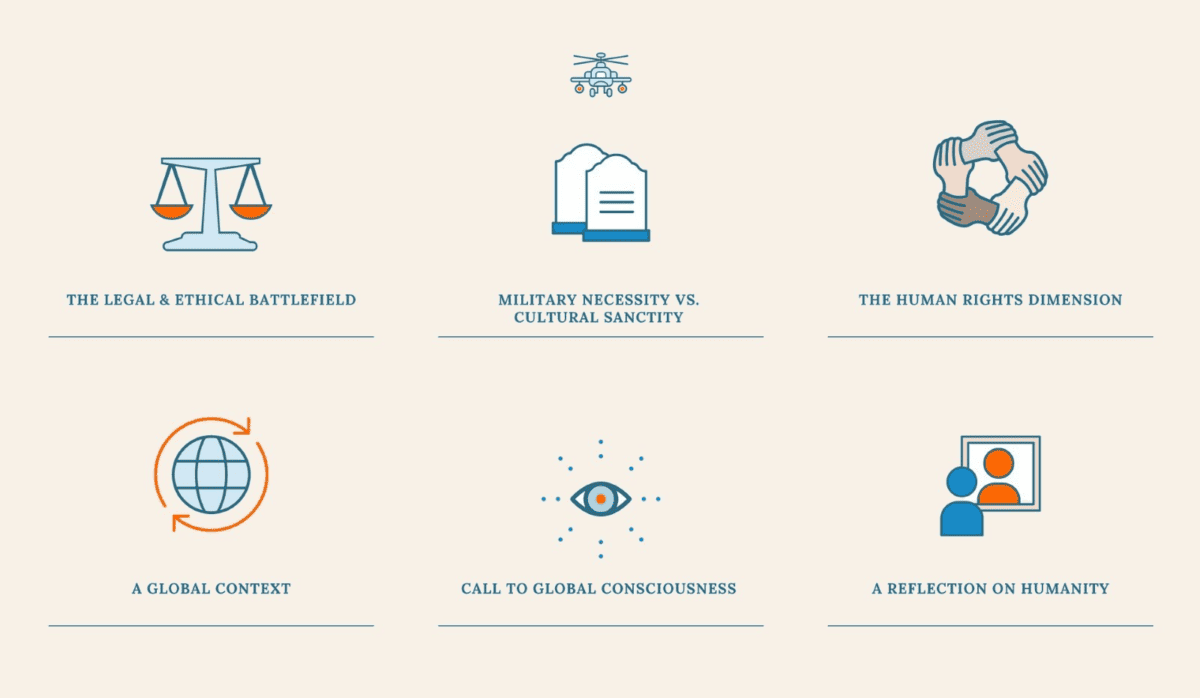
Welmoet Wels, MA, LLM
Megan Bassendale, MA, MSc, DipFM

Amid Gaza’s tumultuous landscape, a less visible but equally profound tragedy unfolds—this time, targeting the sanctity of the final resting places. Recent investigations, including comprehensive reports from international media such as CNN, have shed light on the destruction of cemeteries, unveiling a silent war against the dead.
The Legal and Ethical Battlefield
The conflict in Gaza brings to the forefront a complex intersection of international law and the ethics of warfare. While international law outlines protections for the war dead, the nuances of these conflicts blur the boundaries, challenging the safeguarding of general burial sites. This legal labyrinth highlights a critical question: How do we navigate the protection of cultural and religious sanctities amidst warfare?
Military Necessity vs. Cultural Sanctity
The principle of military necessity, often invoked in conflict, faces a contentious debate when it leads to the desecration of cemeteries. This tension between strategic imperatives and the preservation of cultural sanctity underscores a broader ethical dilemma, prompting a re-evaluation of how warfare is conducted in densely populated areas.
The Human Rights Dimension
Human rights extend their reach beyond the living. The right to family unity, which encompasses knowing the fate and resting place of loved ones, is being compromised. But this, too, is a double-edged sword, as seen in Israel’s efforts to locate missing hostages, a mission that also falls under the umbrella of human rights obligations. Beyond the immediate legalities lies a deeper human rights issue—the impact on families and communities who find their loved ones’ graves destroyed. The right to know and honour one’s deceased is a fundamental aspect of human dignity, one that is compromised when cemeteries become collateral in conflict.
A Global Context
This narrative extends beyond the borders of Gaza, touching on universal themes of respect for the deceased and the preservation of historical and cultural heritage. It reflects a global concern for how conflict zones are navigated and the legacy of those conflicts on human history and dignity.

Figure 1: Fallujah cemetery [Fadi Alwhidi – Anadolu Agency]
Call to Global Consciousness
The destruction of burial sites in Gaza raises poignant questions about our collective moral and ethical standards in times of conflict. It serves as a call to the international community to reassess the frameworks of warfare, ensuring that respect for the dead and the preservation of cultural sanctity are upheld.
In Conclusion: A Reflection on Humanity
The destruction of cemeteries in Gaza is not just an assault on the dead but a blow to the living – to history, heritage, and humanity. As this narrative unfolds, it poses a crucial question: In the face of conflict, how do we honour and preserve the dignity of those who are no longer here to speak for themselves?
